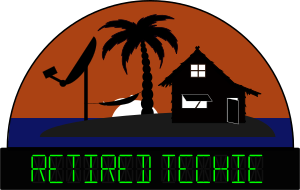Retired Techie
Getting older, not necessarily wiser!
KISS GNU/LINUX Introduction
Published on December 27, 2022 at 4:22 am by LEWIntroduction
This is a preamble to a new series of post I have been thinking about for awhile now. This series will focus on Linux for the average computer user. This statement will definitely require some explanation, as far as intent and purpose go. The first of which, who is the average computer user? And it may not be who most people think it is.
So first I must define the Average Computer User and their expectations. Then I need to define how I am going to proceed with this series. It is going to be some what different from my other posts, in that I will be providing few or no options along the way.
The point being, this is how you can simply make it work, regardless of the other ways to achieve the same goal.
Who is the Average Computer User
I have seen the definition of “Average Computer User” argued across the various forums and web sites. For this post I am not arguing, I am defining. You can read the below definition and decide if this discussion is really for you, or if you should not waste your time and look elsewhere.
The Average Computer User is someone who does just that, use a computer. They are not tech or computer savvy, nor do they want to be. They just want there computer to work without having to futz around with the setups, work arounds, or configurations.
Expectations for the Average Computer Users
The expectation is that they can complete common non technical computer tasks, and that things just work. I am not including gaming, because those of you who are seriously into gaming have no choice but to develop a certain level of tech savvy and competence.
To put things simply, they want to log in, do their work, and log out with minimal fuse. They do not want to to do custom configuration or tinker around with the OS.
Interestingly the average computer user is not a user of some of the more well known applications that only run on MS Windows. I have had to use some of these type of application in the past, so I speak from experience when I say many of them do not lend themselves to the skill level of the average computer user.
Purpose of this Series
My intent is to write a number of posts about using GNU/Linux as ones daily driver OS with the minimal amount of fuss.
To this end I am only going to focus on basic topics and tasks, while keeping the technical trash talk to a minimum. I will be focused on just one way of doing things, the one I consider the easiest for most people to understand and execute.
I know that many people will question some of the choices I will be making. That fact alone indicates they have at least a somewhat higher level of knowledge than average. And that is okay by me, but I again will keep my focus on one simple, and as non technical, way to do a task and move on.
Just for the record, some things will not be that simple. Some tasks do require making decisions, which in turn requires understanding what you are deciding.
Operating System of Choice
For my first questionable choice, in many peoples eyes, will be the use of Debian GNU/Linux as the main driver. Debian tends to receive lot of negative press, most of which is undeserved.
Some will say Debian is hard to install, and many years ago that might have been true. Such is not the case today, unless you are using some fringe or bleeding edge hardware.
Some will say its software is outdated. While it is true that software version numbers lag behind other distributions by a year or more, most average users do not have a need for bleeding edge software. Also Debian’s slow release cycle ensures really long term support.
Most everyone will tell you Debian is rock hard stable and just works, which is an accurate assessment. Updates will not break your system, nor do you have to worry about the application you are using changing its version and interface configuration on you.
All of the above makes Debian perfect for the average computer user. And ask yourself, why do some of the most popular Linux Distributions out there trace there pedigree back to Debian?
Hardware Expectations
I do have an expectation that the average computer user is using mainstream hardware that is less than ten years old. Yes you can run Linux on really old and really low power hardware, but you usually have to do a lot of tinkering to get it working properly. Something our average computer user is not going to want to do.
Therefore the expectation is that most are using a computer with a multi core CPU that supports a 64 bit OS. Interestingly there is a 32 bit version of Debian. Also, with Debian, the boot mode (legacy vs efi, to much technical stuff?) does not really matter.
With a few minor exceptions, I will also be staying away from BIOS setups.
Again, I am going to do my best to keep things simple stupid.
Conclusion
I have discussed my intent for a series of posts on Linux for the average computer user. Throughout I will attempt to keep to the Keep It Simple, Stupid (KISS) principle.
This is not an indictment of anything, but a statement that the average computer user wants something that just works.

Add New Comment